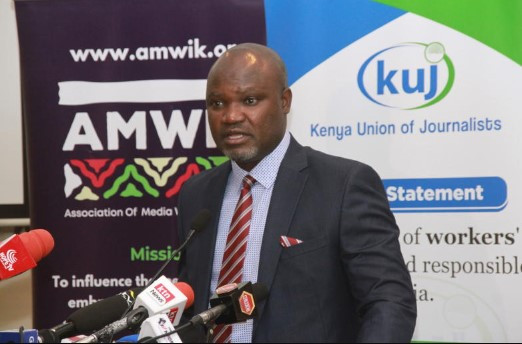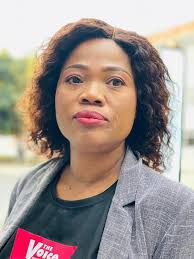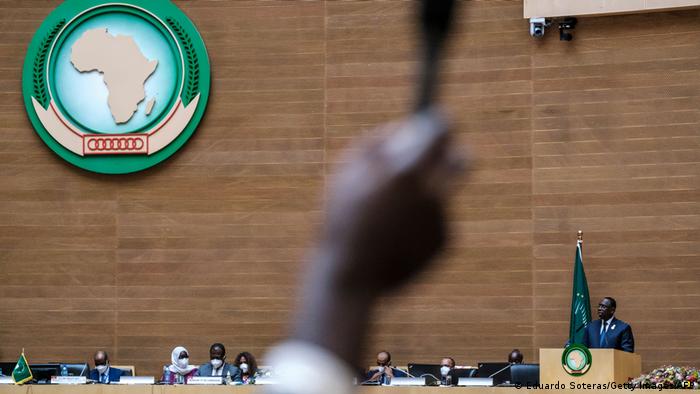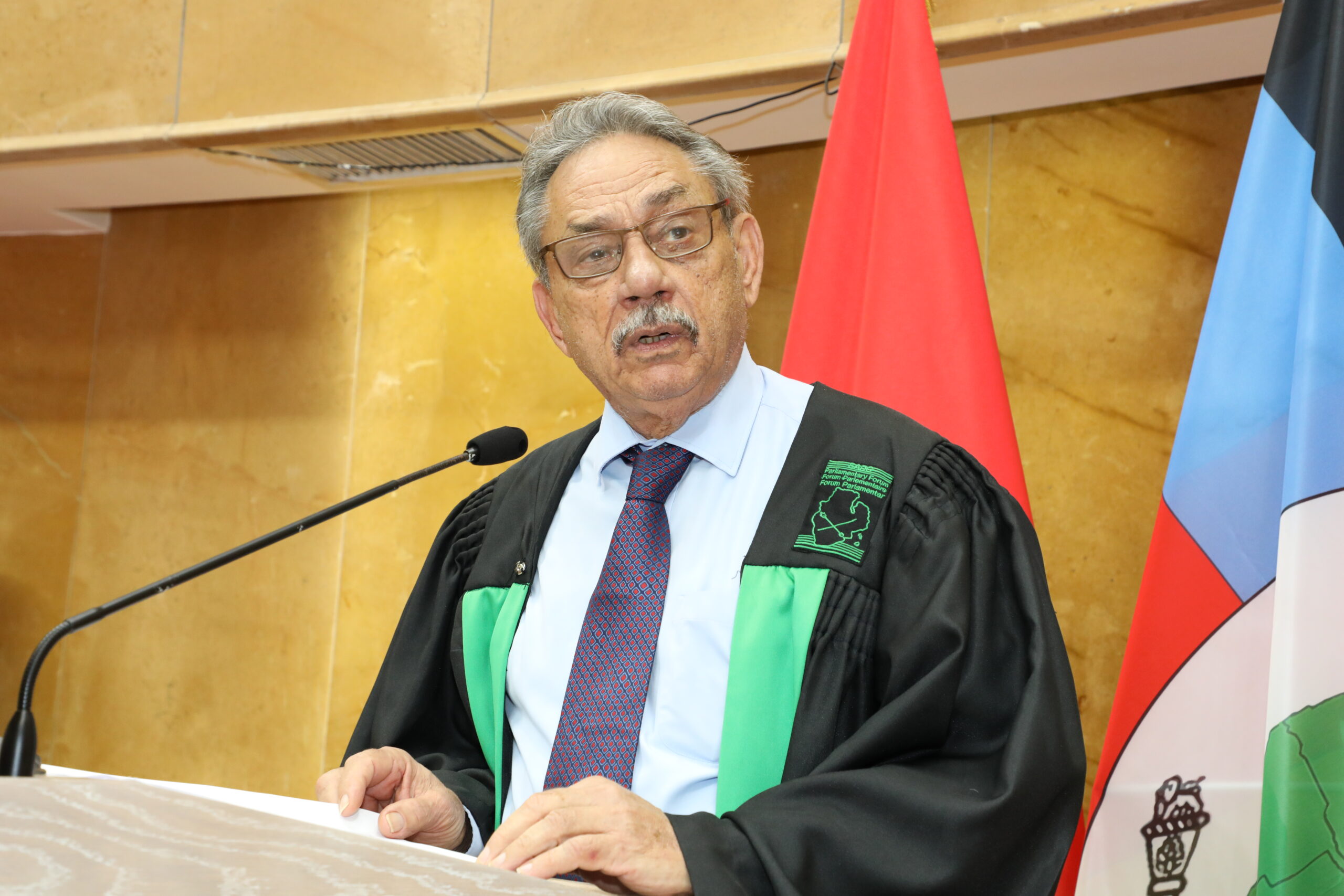
Churchill-Otieno-President-of-The-Africa-Editors-Forum-C-The-Standard.jpg
The Pan Afrikanist Watchman
On World Press Freedom Day, The African Editors’ Forum (TAEF) reaffirms its unwavering commitment to a free, independent, and diverse media landscape across the continent.
In a statement to observe the World Press Freedom Day, Churchill Otieno, President of The African Editors’ Forum, observed that, as we celebrate the vital role journalists play in fostering democracy and accountability, we must acknowledge the persistent challenges that threaten this ideal, and we cannot remain silent in the face of egregious violations.

“We see a worrying trend of shrinking media freedom in several African countries. Governments continue to impose restrictions and censorship, hindering the free flow of information.
Way too many African journalists have been forced into exile. Way too many leaders continue to disparage journalistic work and to troll journalists. Recent operational challenges have unfortunately sparked a dangerous resurgence of self-censorship, silencing critical voices and hindering the public’s right to know.
The recent clampdowns on the press in Burkina Faso and Burundi serve as stark reminders of the fragility of press freedom. TAEF expresses deep concern over the Burkina Faso authorities’ targeting of independent journalists.
Forcing truth seekers to abandon their critical role and become soldiers on the war front is not only a violation of press freedom but a disservice to the nation. Journalists play a vital role in holding power accountable and informing the public, and their safety must be guaranteed.
The arrest of journalist Sandra Muhoza in Burundi over a comment made in a private journalists’ WhatsApp group exemplifies the increasingly intolerant environment for independent media.
TAEF calls for the immediate release of Ms. Muhoza and urges the Burundian government to engage in constructive dialogue with journalists, not silence them.
While Africa embraces the possibilities of technology, the digital divide remains a significant barrier. Limited access to reliable Internet and technology creates hurdles for journalists reporting in real-time and for citizens to access diverse media sources.
As Artificial Intelligence (AI) transforms the media landscape, this divide threatens to widen, further marginalizing those without access. We must bridge this gap to ensure all Africans benefit from a truly inclusive information ecosystem.
Many African media houses grapple with financial constraints. Limited advertising revenue, coupled with political interference, stifles investigative journalism and the production of quality content.
The debate about government advertising in Kenya clearly manifests vested interests. TAEF calls on big tech companies to adopt fair compensation models that ensure news organizations receive a just share of revenue generated from their content.
This is essential for the financial sustainability and long-term viability of independent media. The spread of misinformation and “false news” poses a major threat, eroding public trust and potentially fuelling violence.
We advocate for stricter fact-checking mechanisms and ethical reporting practices within newsrooms. Sensationalism and bias have no place in responsible journalism.
Women remain significantly underrepresented in media as both journalists and sources. This undermines the richness and inclusivity of the media narrative. TAEF champions initiatives that empower women journalists and ensure their voices are heard in newsrooms and on airwaves.
Journalists in Africa continue to face significant safety risks. Harassment, intimidation, and physical violence are chilling realities. TAEF urges governments and all stakeholders to prioritize the safety of journalists, allowing them to fulfil their crucial role without fear.
On this World Press Freedom Day, let us recommit to building a media landscape in Africa that is truly free, independent, and empowers all voices. It’s a collective responsibility – for journalists, media owners, governments, and citizens alike.
A strong, vibrant media is the cornerstone of a thriving democracy, and together, we can ensure it flourishes across the continent”.
Botswana calls for greater inclusivity and consultation
Meantime, the Botswana Editors Forum (BEF) Chairperson, Emang Mutapati released a statement on May 3 to mark the World Press Freedom Day calling for greater inclusivity and consultation.
“The Botswana Editors Forum would like to join local stakeholders and partners amongst the international community in celebrating and commemorating World Press Freedom.
In particular, we would like to acknowledge and appreciate the resonance of the theme of this year’s Press Freedom Day – A Press for the Planet: Journalism in the Face of the environmental crisis resonates deeply with Batswana especially in the light of the elephant and wildlife conflict.

Botswana’s elephant’s population remains an important attraction for Botswana’s tourism’s portfolio and evidently needs to be appropriately protected, nurtured and managed. The local media needs to be better capacitated to research stories and provide information helping to create public awareness about the nature of the challenges faced and solutions, which are generated by grass roots actors.
World Press Freedom Day should help us as Batswana to remember that we are in this fight together. The Day should be used to reinforce the idea that the public must always have access to accurate up to date information on environment. We should not allow any division of private and state media! We should also shun State Capture of journalists and promote, jealously protect and nurture independence of the media and professionalism.
It is imperative that our leaders across the spectrum at both corporate and political level encourage more inclusivity and specialisation in niche areas like the environment and climate change reporting.
Local media needs support from private sector and government to assign coverage of niche reporters outside urban areas like Gaborone and Francistown, which are often overreported. The coverage of villages outside urban areas is costly, creating a challenge for under resourced local media houses.
This is particularly critical now as the country battles food insecurity and our environment being the one asset that could be a game changer in this regard. We therefore need to invest in the diversification of our media landscape and niche reporters accordingly.
Our wealth as a country should be underwritten by a strong and unwavering collective commitment to providing the right support for less resourced members of our community. These resources are both material and otherwise. We are therefore challenged as a country to utilise indigenous knowledge systems optimally and improve the media environment.
This will involve introducing freedom of information legislation, which will encourage individuals who are adversely affected by wildlife-human conflict to share their stories in real time. It is also very important that related instruments are legislated like whistle blower protection for example.
Discussions about the environment should not only involve discussion about the heavy population in the northern parts of the country. It should include eyewitness accounts and personal interviews. Stakeholders should appreciate the communities at the heart of such discordant discourse.
These communities who are often outside mainstream are often underreported and their challenges ignored. Media and communities need to work together to highlight the plight of underprivileged communities countrywide. We are together torchbearers of our democratic values and customs. United we stand, divided we fall!”
(C) TPA2024









